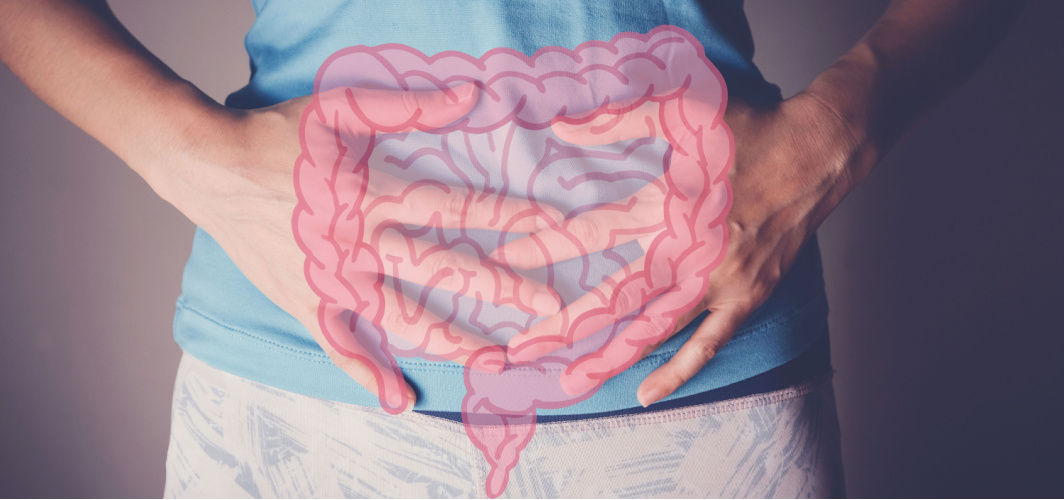Digestive Health
Leaky Gut Syndrome: Causes, Symptoms, Tests and Treatment
8 min read
By Apollo 24|7, Published on - 28 August 2023, Updated on - 01 September 2023
Share this article
0
1 like

Leaky gut syndrome is a condition that has gained significant attention in recent years. It refers to increased permeability of the intestinal lining, allowing harmful substances such as bacteria, toxins, and undigested food particles to leak into the bloodstream. Our gut barrier plays a crucial role in maintaining our overall health. It is responsible for absorbing nutrients from the food we eat while keeping out harmful substances. When this barrier is compromised, it can have far-reaching consequences on our well-being. Read on to know more about leaky gut, its causes as well as its treatments.
Causes of Leaky Gut Syndrome
Causes that can contribute to the development of leaky gut syndrome include:
A. Intestinal Permeability
The intestines have a selectively permeable barrier that is designed to absorb nutrients from digested food while preventing harmful substances and pathogens from entering the bloodstream. However, in cases of intestinal permeability, this barrier becomes compromised, leading to the leakage of undigested food particles, toxins, and bacteria from the intestines into the bloodstream.
1. Chronic Inflammation
Underlying conditions like autoimmune diseases, celiac disease, Crohn's disease, and Irritable Bowel Syndrome (IBS) can cause chronic inflammation in the gut, leading to increased intestinal permeability.
Imbalance in gut microbiota
Also known as 'dysbiosis', an imbalance of gut bacteria can disrupt the normal functioning of the intestines and contribute to increased intestinal permeability.
Poor diet and food intolerances
Consuming a diet high in processed foods, refined sugars, and unhealthy fats can disrupt the balance of gut bacteria and compromise the integrity of the intestinal lining.
Chronic stress: Prolonged stress can affect gut health by altering the production of digestive enzymes and increasing inflammation in the intestines.
B. Specific Triggers of Leaky Gut Syndrome
Besides the general factors, some patients may also have specific triggers contributing to the development of the syndrome:
1. Nonsteroidal Anti-Inflammatory Drugs (NSAIDs)
Long-term use of NSAIDs such as ibuprofen and aspirin can damage the intestinal lining and increase permeability. Other medications like corticosteroids and chemotherapy drugs may also have similar effects.
- Chronic alcohol consumption: Excessive alcohol intake can disrupt the natural balance of gut bacteria and damage the intestinal barrier. This can lead to increased permeability and inflammation.
- Chronic use of antibiotics: Antibiotics are commonly used to treat bacterial infections, but they can also disrupt the delicate balance of gut bacteria. Prolonged or frequent use of antibiotics can damage the intestinal lining and contribute to the leaky gut syndrome.
- Environmental toxins: Exposure to environmental toxins, such as heavy metals, pesticides, and pollutants, can also contribute to leaky gut syndrome.
Symptoms of Leaky Gut Syndrome
The most common symptoms of a leaky gut are:
1. Digestive Symptoms
- Bloating and gas: Leaky gut syndrome can cause excessive gas production in the intestines, leading to bloating and discomfort.
- Diarrhea or constipation: The condition can disrupt normal bowel movements, resulting in either frequent loose stools or difficulty passing stools.
- Abdominal pain: Many individuals with leaky gut syndrome experience abdominal pain, which may be cramp-like in nature.
2. Systemic Symptoms
- Food sensitivities: Leaky Gut Syndrome can trigger an immune response, leading to the development of food sensitivities or allergies. Common culprits include gluten, dairy, and certain grains.
- Fatigue: The constant inflammation caused by a leaky gut can result in fatigue and low energy levels.
- Joint pain: Inflammation from a leaky gut can also affect the joints, leading to pain and stiffness.
3. Impact on Mental Health
- Brain fog: Individuals with Leaky Gut Syndrome often report difficulties with concentration, memory, and clarity of thought.
- Anxiety and depression: Research suggests that there may be a link between Leaky Gut Syndrome and mental health conditions such as anxiety and depression.
Tests for Leaky Gut Syndrome
While there is no single definitive for leaky gut, healthcare providers may use a combination of methods to assess its presence and severity.
1. Medical History and Symptom Assessment
The first step in diagnosing leaky gut syndrome is a thorough medical history and symptom assessment. Your healthcare provider will ask about your symptoms, such as digestive issues, food intolerances, fatigue, and autoimmune conditions.
They will also inquire about any recent medication use, dietary habits, and lifestyle factors that may contribute to the development of leaky gut syndrome.
2. Laboratory Tests
Laboratory tests that can provide valuable insights into the presence of leaky gut syndrome include:
- Intestinal permeability test: This test measures the absorption of two substances (lactulose and mannitol) after ingesting them orally. Higher levels of lactulose in the urine suggest increased intestinal permeability.
- Stool analysis: Stool analysis can identify markers of inflammation, gut dysbiosis (imbalance in gut bacteria), and other abnormalities that may contribute to the leaky gut syndrome.
- Food sensitivity testing: Identifying specific food sensitivities can help guide dietary modifications to reduce inflammation and heal the gut lining.
- Blood tests: Blood tests can detect signs of inflammation, nutrient deficiencies, and autoimmune antibodies that may be associated with leaky gut syndrome.
Diet for Leaky Gut Syndrome
Some suggestions for a suitable diet are the following:
1. Foods to Include in the Diet for Gut Healing and Repair
- Fiber-rich foods: Incorporating fiber-rich foods like fruits, vegetables, whole grains, and legumes can support the growth of beneficial gut bacteria, promote regular bowel movements, and help maintain a healthy gut lining.
- Probiotics and fermented foods: Probiotics from sources such as yogurt, kefir, sauerkraut, kimchi, and kombucha support gut health.
- Omega-3 fatty acids: Found in fatty fish like salmon, mackerel, and sardines, as well as flaxseeds and walnuts, omega-3 fatty acids have anti-inflammatory properties that can help reduce inflammation in the gut.
- Bone broth: Rich in collagen and amino acids, bone broth helps repair the intestinal lining and reduces inflammation.
- Aloe vera juice: Aloe vera has soothing properties that can help heal the gut lining. Drink 1-2 ounces of pure aloe vera juice daily to support gut health.
2. Foods to Avoid
- Processed and refined foods: High in unhealthy fats, sugar, and artificial additives, these foods can contribute to inflammation and worsen gut health.
- Gluten-containing grains: Grains like wheat, barley, and rye can trigger inflammation in the gut and worsen symptoms of Leaky Gut Syndrome. Instead, opt for gluten-free alternatives like quinoa, rice, and oats.
- Dairy products: Dairy products contain lactose, a type of sugar that some people have difficulty digesting. Consuming lactose can lead to bloating, gas, and diarrhea in individuals with Leaky Gut Syndrome. Try lactose-free or plant-based milk alternatives, instead.
- Sugar and artificial sweeteners: Excessive sugar consumption has been linked to inflammation and imbalances in gut bacteria. It's important to limit your intake of sugary foods and beverages like candies, cakes, sodas, and fruit juices.
- Certain vegetables: Beans, lentils, broccoli, cabbage, and onions can cause gas and bloating due to their high fiber content.
Treatment for Leaky Gut Syndrome
The treatment involves a comprehensive approach that aims to restore the health of the intestinal barrier, such as:
1. Lifestyle Modifications
- Stress management techniques: Practising stress management techniques such as deep breathing exercises, yoga, meditation, or engaging in hobbies can help reduce stress levels and promote gut healing.
- Regular exercise: Exercise helps stimulate digestion, reduce inflammation, and improve overall immune function. Aim for at least 30 minutes of moderate-intensity exercise most days of the week.
- Sufficient sleep: Poor sleep quality or lack of sleep can contribute to a compromised immune system and increased inflammation, which may worsen Leaky Gut Syndrome symptoms. Aim for 7-9 hours of quality sleep each night to support gut healing.
Read more: Irritable Bowel Syndrome: 5 Tips To Ease The Pain
Supplements and Medications
Supplements and medications can play a substantial role in managing leaky gut syndrome.
-
Probiotics and prebiotics: Probiotics have been shown to improve gut health, reduce inflammation, and strengthen the intestinal barrier. Prebiotics can help promote the growth of these beneficial bacteria and support a healthy gut microbiome. You make also take prebiotic and probiotic supplements to reap the benefits.
-
Digestive enzymes: Digestive enzymes break down food into smaller molecules, making it easier for your body to absorb nutrients. This can reduce stress on the digestive system and help improve digestion.
-
L-glutamine: It helps repair and regenerate the cells of the gut wall, promoting healing and reducing inflammation. This supplement can be particularly beneficial for individuals with leaky gut syndrome.
-
Zinc and Vitamin D: Zinc is important for immune function and gut health, while vitamin D plays a role in immune regulation and gut barrier function. Supplementing these nutrients may help support gut healing and reduce inflammation. You may also use zinc supplements and vitamin D supplements to reap the benefits.
Conclusion
Understanding the importance of the gut barrier is key to comprehending leaky gut syndrome. While the symptoms can vary, it's important to be aware of potential signs such as digestive issues, food sensitivities, fatigue, skin problems, joint pain, and autoimmune conditions. Guidance from a healthcare professional and a personalized treatment plan can help you navigate your way out of this syndrome.
For more information,
FAQs
Q. How is leaky gut syndrome diagnosed?
Currently, there is no definitive diagnostic test for leaky gut syndrome. Diagnosis is based on symptoms, medical history, and the exclusion of other conditions.
Q. How long does it take to heal a leaky gut?
The healing process can vary from person to person, but it generally takes several weeks to months to implement lifestyle modifications and treatment strategies.
Q. Can leaky gut syndrome be prevented?
Maintaining a healthy diet, managing stress, and avoiding excessive use of medications like antibiotics can help support gut health and potentially prevent leaky gut syndrome.
Q. Are there any herbal remedies for leaky gut syndrome?
Certain herbs like licorice root, chamomile, and slippery elm may have anti-inflammatory properties that can aid in reducing gut inflammation.
Q. Can genetics contribute to leaky gut syndrome?
People with a family history of leaky gut syndrome may be at increased risk of developing the same, however, other factors also play a significant role.
Digestive Health
Leave Comment
Recommended for you

Digestive Health
7 Natural Ways to Overcome Acidity
Acidity is a common problem. People who experience severe episodes of acid reflux more than twice a week can relieve the symptoms by making certain changes to their lifestyle and diet.

Digestive Health
Constipation: 5 Common Causes That One Should Know About
Constipation is a common problem that can affect people of any age. While most constipation cases are mild and can be easily addressed with exercise and diet changes, some may require medical treatments.

Digestive Health
How Probiotics Keep the Digestive System in Great Shape
Research proves that probiotics help maintain a healthy and properly functioning digestive system that filters out and eliminates harmful microbes, chemicals, toxins, and waste products.
Subscribe
Sign up for our free Health Library Daily Newsletter
Get doctor-approved health tips, news, and more.
Visual Stories

Hidden Health Benefits in a Bowl of Salad
Tap to continue exploring
Recommended for you

Digestive Health
7 Natural Ways to Overcome Acidity
Acidity is a common problem. People who experience severe episodes of acid reflux more than twice a week can relieve the symptoms by making certain changes to their lifestyle and diet.

Digestive Health
Constipation: 5 Common Causes That One Should Know About
Constipation is a common problem that can affect people of any age. While most constipation cases are mild and can be easily addressed with exercise and diet changes, some may require medical treatments.

Digestive Health
How Probiotics Keep the Digestive System in Great Shape
Research proves that probiotics help maintain a healthy and properly functioning digestive system that filters out and eliminates harmful microbes, chemicals, toxins, and waste products.